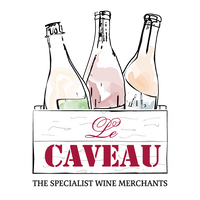Foillard’s Côte du Py has long served as his flagship, but since acquiring Corcelette not so long ago, the wine has served as the perfect counterpoint to the Côte du Py. In most vintages, the dividing line is drawn in stark relief. His Côte du Py is one of the monuments of Morgon. It is a powerhouse, deep and meaty with a certain sternness and structure – drink it with a fork and knife. In contrast, Corcelette is among the most elegant renditions of Gamay on planet earth.
Corcellette shows Morgon’s more delicate side with suppleness and a racy softness that still has plenty of vigor and snap (it’s just cloaked in satin). It is because of the soil and the terroir – visit Foillard and he will hammer home his focus on terroir; all the wines are made the exact same way and he’ll insist you taste them all, side-by-side. Here, we are dealing with 80-year-old vines, planted in sandy soil. The aromatics soar and the texture is silky and fine.
JEAN FOILLARD, Villié-Morgon Organic Principles, natural
'Of all the disciples of Jules Chauvet, Jean Foillard is the most likely to succeed in the practice of using very little SO2, without having his wines act capriciously at the slightest change in atmospheric pressure. His wines possess magnificent body and give aromas of a unique purity and grace.’La Revue de France
‘There is something no-nonsense and straightforward about Foillard’s wine. It seems to say, let’s cut straight to deliciousness. Deliciousness with class. It has a wonderful texture going down. The finesse from start to finish seems almost offhanded.’ Kermit Lynch
Jean Foillard’s estate comprises of 11 ha, including 5 ha in the fabled Côte du Py climat. A vigneron like Jean Foillard doesn't come around too often. Jean Foillard and his wife Agnès started their handkerchief-size domain in Morgon in the 1980's when the majority of appellation, driven by big negoces, were and are still producing industrial wines. Undeterred by their surroundings, Jean and Agnès decided to embark on their own path. They returned to honest vine growing and wine making the way their grandparents did. The vines are grown organically. The same attention is paid in their cellar. There are no pumps to move the wines at any stage in the chai. Every move of the wine in the cellar, from racking to bottling, is done by gravity. There are no additives in the cellar to hide shortcuts in the vineyards because there are no shortcuts in the vineyards. The hand-harvested grapes are fermented using natural yeasts only.




